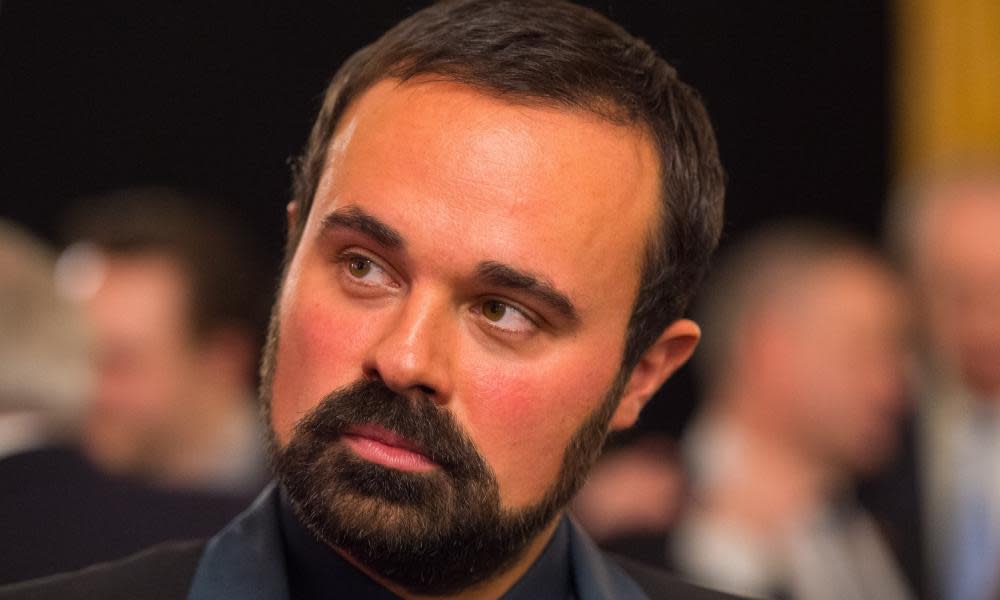Saudi state part-owns Evening Standard and Independent, court told

The Evening Standard and the Independent have been explicitly accused by the British government of being part-owned by the Saudi Arabian state, with a series of “unconventional, complex and clandestine” deals used to hide the sale of stakes in the London-based news outlets to a Saudi government bank.
Evgeny Lebedev, who controls both publications, sold 30% stakes in them to offshore companies fronted by a Saudi businessman, Sultan Mohamed Abuljadayel, in 2017 and 2018. The Standard and the Independent say they are unsure who ultimately employs the businessman.
David Scannell, the government’s legal representative, told a court on Tuesday that the Saudi Arabian government could now potentially exert editorial influence over the news outlets, said the sale of the shares has “national security implications”, and accused Lebedev of going out of his way to avoid answering questions about the deals.
“What is of concern to Her Majesty’s government is that a foreign state could be acquiring a substantial stake in Lebedev Holdings [owner of the Evening Standard] and the Independent simultaneously,” he said.
The culture secretary, Jeremy Wright, last month announced an investigation into the sales, warning that the ultimate investor may have “strong links to the Saudi Arabian state” and raising fears that a foreign government may have gained influence over the news direction of two major British publications.
The decision to intervene is highly political. The heavily lossmaking free London newspaper is edited by the former Conservative chancellor, George Osborne, who has let it be known that he would consider a return to frontline politics.
In addition, the incoming Conservative prime minister, Boris Johnson – who could influence the direction of the inquiry – has refused to answer questions from the Guardian about his attendance at parties held at Lebedev’s Italian castle.
Wright previously said the Saudi investment deals “may have an effect on the Evening Standard and the Independent’s news agendas”. The Independent has already launched a series of foreign-language websites run and staffed by Saudi journalists and aimed at audiences in some of the nation’s regional rivals.
Saudi Arabia has a poor record on press freedom and the sale of the stake in the Evening Standard’s parent company took place in the aftermath of the murder of journalist Jamal Khashoggi, widely considered to have been carried out by by Saudi officials.
Both the Independent and Evening Standard insist concerns about editorial independence are unfounded and they are not influenced by financial backers.
Lebedev’s lawyers are fighting to stop the government investigating the Saudi investment on a technicality, arguing that the government waited too long and missed the deadline to intervene.
In response, the government says its decision was delayed, in part, because both Lebedev and the Saudi investors refused to provide key information.
A hearing of the competition appeal tribunal also heard that the Evening Standard and Independent investments had been made through two separate Cayman Islands-registered companies called Scalable Inc and International Media Company, a process that helped obscure the true investor.
Each of these two companies was in turn 50% owned by Abuljadayel and 50% by Wondrous Investments, itself ultimately controlled by Saudi Arabia’s state-controlled National Commercial Bank.
“These brass-plaque companies were incorporated for the express purpose of obscuring the true acquirers,” said Scannell, acting for the government. “Our understanding is that the bank is owned and controlled by the Kingdom of Saudi Arabia.”
Asked whether Abuljadayel was employed by the Saudi investment bank, lawyers for the Evening Standard and Independent referred to previous news articles and said: “It’s certainly been reported as such.”
When pressed further on the Saudi individual’s ultimate employer, the lawyers said: “We’re not really in a position to assist on that.”
Lebedev’s lawyers also argued that the government should have started investigating earlier because the investment had been covered in the Financial Times and the Guardian.
Lebedev has close ties to Saudi Arabia, posing on his Instagram with Saudi-backed militias in Yemen. The Independent editor, Christian Broughton, has visited the Saudi capital to meet business partners.
Birthdays in a war zone. #Yemen 🇾🇪
A post shared by Evgeny Lebedev (@mrevgenylebedev) on May 8, 2018 at 7:24am PDT
The legal challenge was only against the decision to refer the Saudi investment to the Competition Commission on merger grounds.
The culture secretary has separately asked the media regulator, Ofcom, to investigate any public interest concerns and report back by mid-August. The Guardian understands this report will be produced regardless of the court ruling.

 Yahoo News
Yahoo News 
